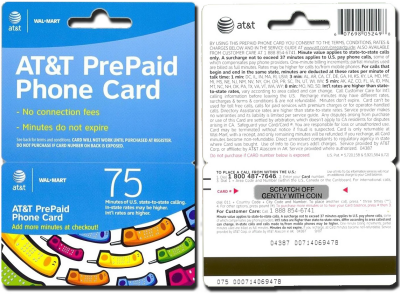Charles Co. Gov. Holiday Schedule Updates
Posted on
BALTIMORE (December 23, 2013) – Attorney General Douglas F. Gansler today announced that his Consumer Protection Division has entered into a settlement agreement with AT&T, resolving allegations that it deceived consumers about the amount of call time provided on its calling cards. The settlement requires AT&T to pay $100,000 to the state and provide the Attorney General’s office with $125,000 in prepaid calling cards, which will then be distributed to U.S. military installations in Maryland or nonprofit organizations providing services and support to active duty or veteran members of the armed forces and their families.
“Our troops make so many sacrifices protecting our freedoms at home and abroad, we wanted this settlement to include a token of gratitude that will enable them to stay in touch with their family and friends throughout the year,” said Attorney General Gansler. “Consumers need to know up front what they’re getting for their money when they purchase a product. This case was an example of what you see isn’t always what you get.”
AT&T’s prepaid phone cards, between 2007 and 2013, prominently displayed on the front of the card the number of minutes of calling time that it supposedly delivers. However, in small print were stipulations that indicated in-state and international rates may be higher and that the boldly advertised number may apply only for state-to-state calls.
On the back of the packaging attached to the calling cards was a disclaimer indicating for in-state calls placed within Maryland, three minutes were deducted for every actual minute of call time. (In some states, eight minutes were deducted for every minute of elapsed call time). Thus, a Maryland consumer who purchased a prepaid calling card between 2007 and 2013 and placed only calls within Maryland would have received only one-third the advertised minutes.
The Division alleged the advertising of a specific number of minutes on the face of its calling cards “had the capacity, tendency or effect of misleading consumers,” since they were often not getting that many minutes of actual call time.
The Federal Communications Commission in July 2013 issued new regulations requiring state public utility commissions to have so-called “access charges” for both in-state and intrastate calls on par with each other. As a result, AT&T voluntarily stopped deducting more minutes for in-state calls than for state-to-state calls. AT&T’s prepaid phone cards now have a new notice below the number of minutes, which reads, “MINUTES of U.S. domestic calling. Int’l rates are higher.”
The settlement prevents AT&T from misleading or deceiving calling card consumers in other ways and provides that the cards must clearly and visibly state if, due to future regulatory changes, altered rate structures or other reasons, it will not deliver the advertised number of minutes for in-state calls.
Attorney General Gansler advises all consumers to carefully read all terms and conditions when purchasing a product to make sure it delivers what is being advertised. Consumers who wish to file a complaint over any transaction can call the Attorney General’s consumer hotline at 410-528-8662 or 888-723-0023. Consumers may also file a complaint online at http://www.oag.state.md.us/Consumer/complaint.htm.
Source: Attorney General Douglas F. Gansler



